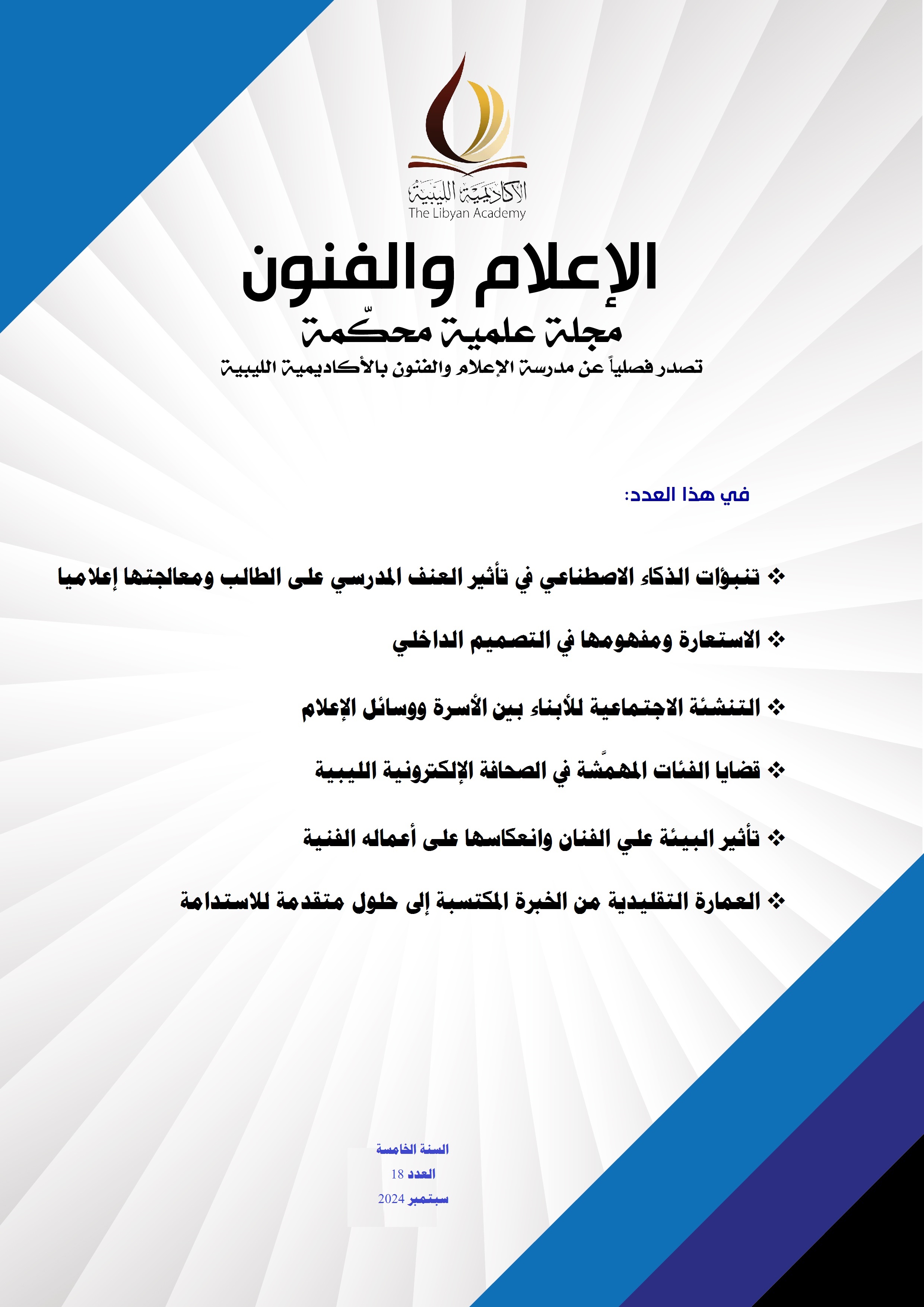اعتماد أساتذة جامعة الزاوية على الفضائيات الإخبارية في الحصول على المعلومات حول الأزمة الليبية
Main Article Content
Abstract
Abstract:
The study aimed to understand the extent to which Zawia University professors rely on satellite news channels as a main source for obtaining information about the Libyan crisis.
The researcher used the media audience approach, which was conducted The study was conducted on a random sample of 120 individuals using a questionnaire as a data collection tool. The study reached a set of results, including:
1- Most of the respondents watch satellite news channels, while a small percentage of them do not watch satellite news channels.
2- More than half of the respondents rely on satellite channels as a main source of news. Despite the spread of digital media and social media, satellite news remains a main source of information for academics, while a few of them see it as a marginal source.
3- Live news from the place via satellite came in the first place, news with a reporter from the place of the event came in the second place, news accompanied by an animated picture came in the third place, news accompanied by a still picture came in the fourth place, and abstract news came in the seventh place. News without a known source came in eighth and last place.
4- Local and Arab satellite news channels did not succeed in comprehensive and objective coverage of the Libyan crisis as a result of several factors, including the political complexity of the crisis through conflict between factions and political forces, armed militias, and external interventions, as well as media polarization, as most satellite news channels are linked to internal political agendas, or to supportive countries. One of the parties to the crisis, and the fragility of the security situation plays a major role in the failure of satellite news channels This makes it difficult to send media teams to cover the events, and the Libyan crisis has lasted a long time, and therefore the world is witnessing multiple and complex crises, and therefore the prolongation of the stages of the Libyan crisis has made the various media outlets lose interest in it.
5- The respondents were unanimous in their lack of trust in local and Arab satellite news channels - and this result is expected - the reasons for which are that some satellite channels tend to support certain parties, whether internal or external, which leads to dealing with the crisis in a biased manner instead of balanced and objective coverage, for the purpose of influence. In Libyan public opinion, in line with its interests.
Keywords: accreditation, university professors, satellite news channels, the Libyan crisis.

